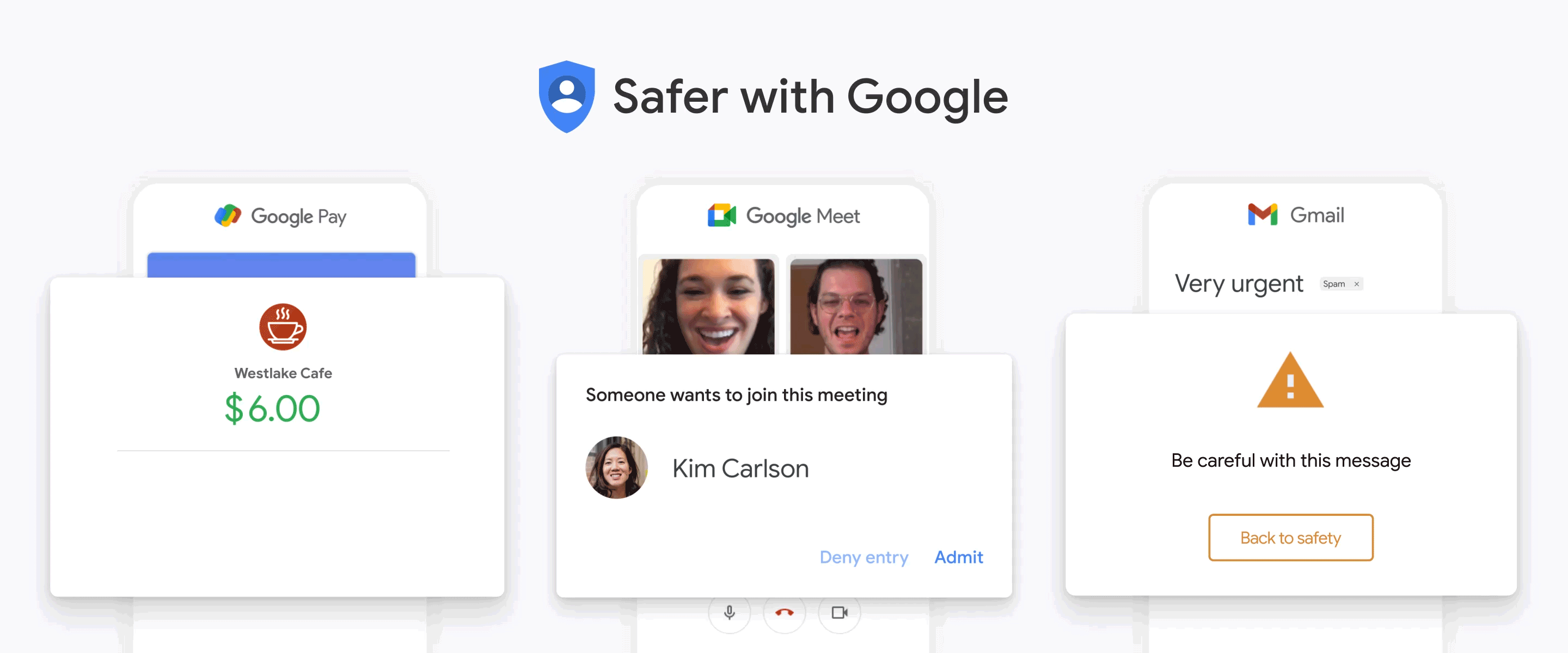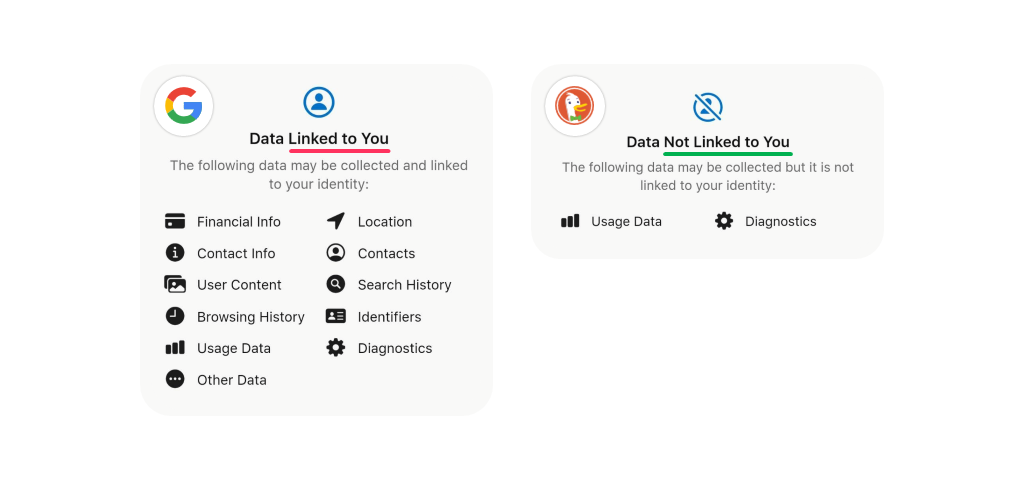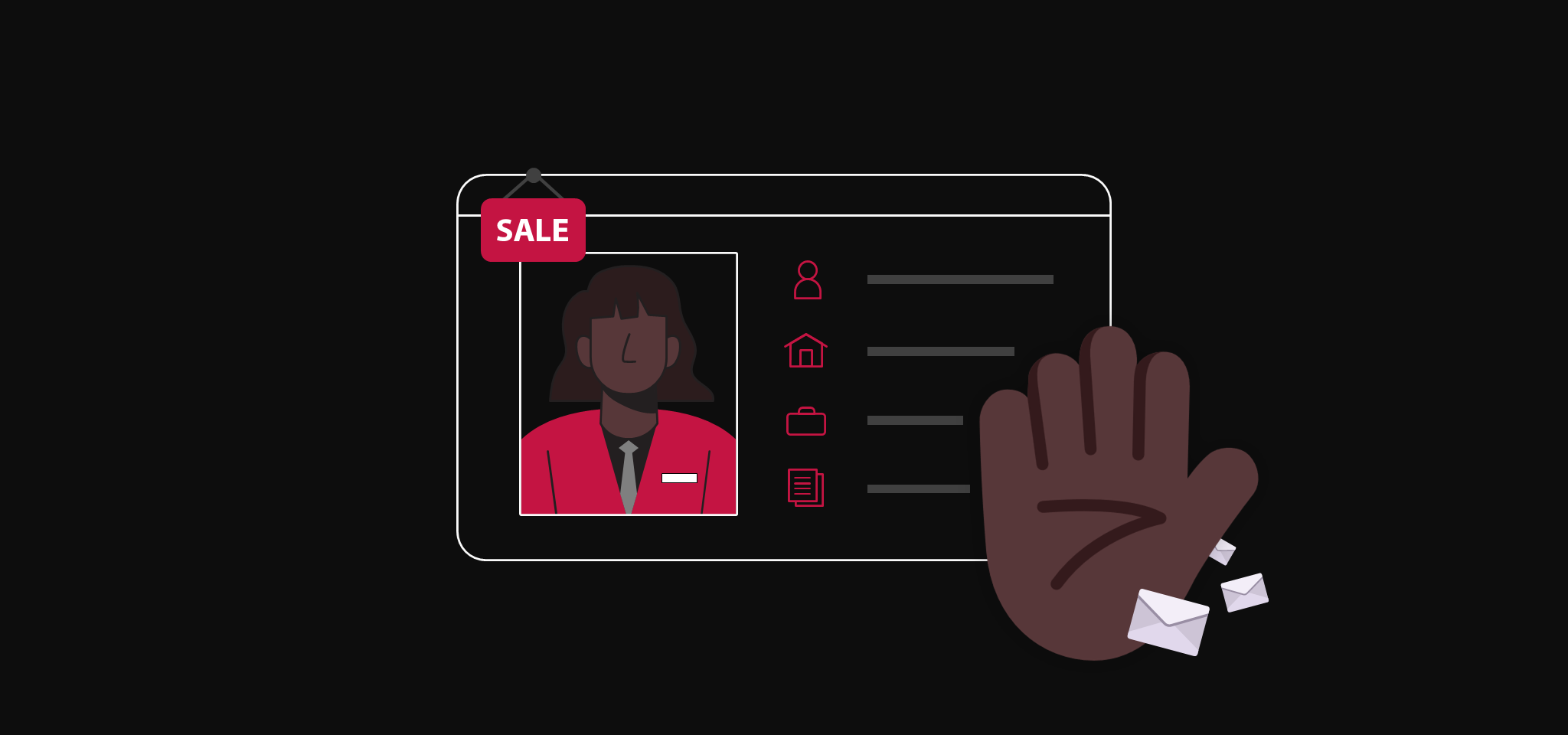✋🏿 Really, what is your privacy all about?
Privacy is not anonymity. It's not (exactly) security, either.
You may have seen it clubbed with the latter in the 'Privacy & Security' section of your settings, but they are quite different concepts.
And it's important to know the difference. For example, while Google tends to market its security features, it technically is not talking about your privacy, even when you may assume so. Its 'Safer with Google' tag speaks about how secure its products like Gmail and Google search are from stuff like phishing attacks and spam. But what is security to begin with?

|
While Google often speaks about its security, do know it's not always referring to privacy. Image: Google
🛡Security
Simply put, security is like having grilled windows, so strangers can't enter it and steal your belongings. The little padlock icon on your search box indicates your site is secure, so eavesdroppers don't know what exactly you do inside a site.
In short, it's the thing preventing you from bad stuff like unknown people getting access to your bank details. For example, with 2FA (2 Factor Authentication) you can have an app send you OTPs to login, so someone can't login even if they have your passwords. Neat.
Keeping your data secure and private are two different things. For example, while Google Drive secures your data from people you didn't share access with, Google employees can technically access your drive's content. And they have. Takeaway: Google Drive's secure, but not private.
Proton Drive, a competitor offers end-to-end encryption so it doesn't know what you upload in it. The catch? It offers up to 1GB for free, unlike G-Drive's fifteen. Best for sensitive documents & files.
✋🏿Privacy
Think of closing the same windows so outsiders can't see you, or what you do. Here, how you decide which windows to shut and which ones to leave open for some ventilation or sightseeing.
Quick myth buster: privacy is not about hiding stuff because you did something wrong. It's about protecting stuff from people you don't want to share information with.
In reality, it means you're preventing people from surveilling you and your habits, a needed move in today's surveillance economy (we'll talk about it in an upcoming ✉).
In digi-speak, it means you decide which kinds of information you choose to share with others, and by how much. Basically, you get to not share your data without consent. Generally, the more private a platform is, the less it knows about you.
Take a private-search engine like DuckDuckGo for example. While Google collects almost everything (even when you don't use its services or have a Google account btw), DDG does not link your searches to you. So it doesn't know who you are and what you search for, which is the total opposite of Google.

|
Compare how much data Google collects and ties to you to fuel its advertising versus what its rival DDG collects (and doesn't link with you). Image: Apple App Store.
🥷🏿Anonymity
Anonymity is like walking out in stealth with face-covering masks (like a ninja), so no one recognizes you. Practically, it's the most difficult & inconvenient to achieve both in our real and digital lives but also worth the effort, if your threat model (people/entitities/attacks you want to protect your data from) demands it. If you're a whistleblower, journalist or activist, you're likely seeking for anonymity.
Say, a privacy-protecting browser like Firefox or Brave will block trackers as you browse online which Google's Chrome doesn't, but sites still know that you visited them with your IP address and/or cookies stored in your browser. If you use Tor, sites don't know who you are or where you're visiting from, as it relays your data across several volunteer-run servers before you reach one. Tradeoff: It's super slow.
🦋Before you leave...
For most people, anonymity is optional. Privacy is not. The internet you see and use harvests your data to sell it to advertisers, and while it sounds benign, the sheer amount of our lives GAMMA (Google, Apple, Microsoft, Meta & Amazon) among others collect is worrying. There are data brokers whose whole point is to scrap your data from the internet and sell it to companies and people you wouldn't know.
Ideally, you should explore an internet without eyes on you. When a private search engine and/or browser, you're blocking companies from surveilling you in a free (as in freedom, free of personalization results targeted to you based on your interests) and mostly ad-free internet.
The best part, private alternatives often, if not always, are better in areas you want them to be. All privacy-focused browsers block trackers, so you're using less data, battery-power and browsing faster; all key points for browsing on the go. And then there's a stand-out feature with almost every non-Google browser, unlike Chrome. These will help you avoid instances like your medical or tax details reaching out to Facebook or Google's servers, who may use this for profiling you further.
Like Firefox's interface (and its non-profit roots). Vivaldi's endless customization. Opera's GX gaming browser, and wait for it... a crypto browser. Explore the competition, you'll be rewarded.
Here's how much Brave has done for me, in about a year-ish even when it's not my only browser. Long-term, your moves add up for some big results.

|
The way I see it, the more you take steps to protect your privacy, the more you respect yourself; it's a neat way of self-respect.
Light 💛
This week, it was about what privacy is. Next week, I'll write to you on some browsers you can try out, all private-by-design and quite the software-refresh you could do with for this year. For now, know privacy is freedom of thought. It's the power to decide what you want and how✊🏾
